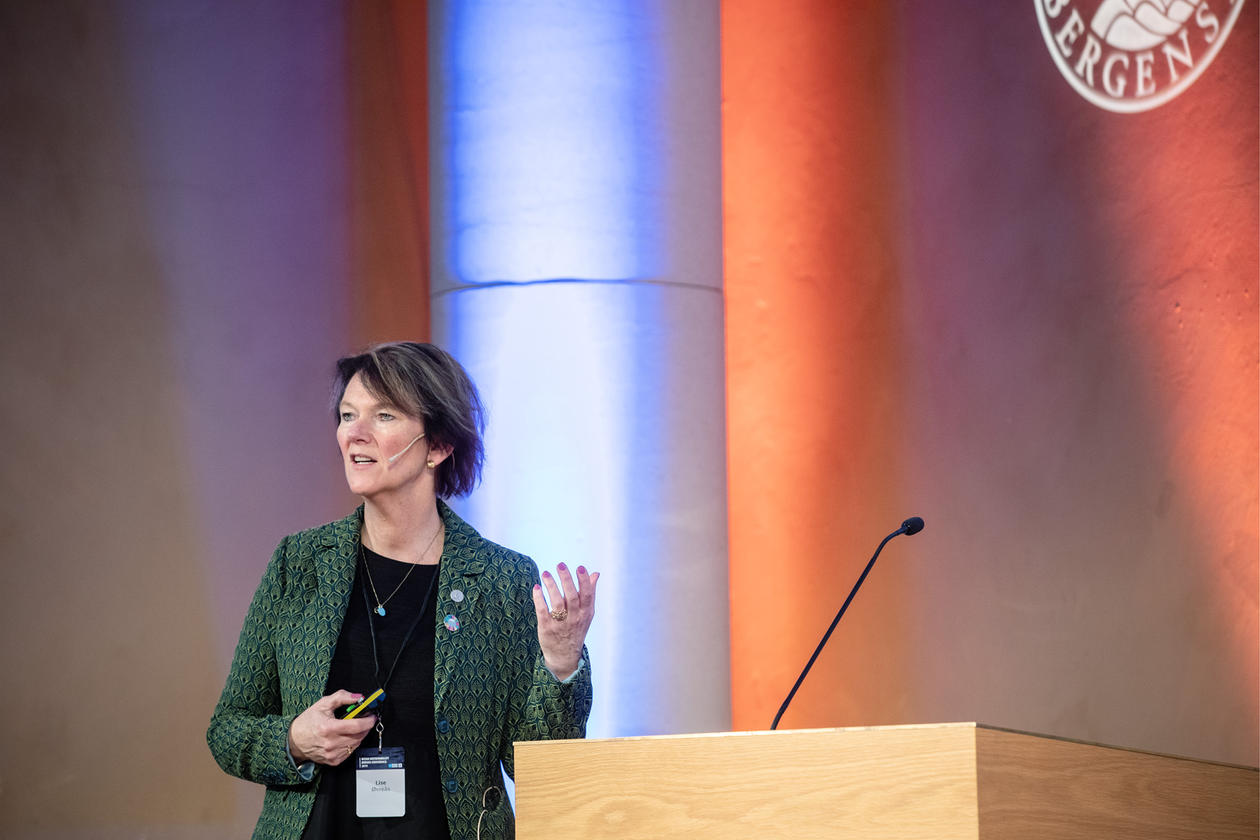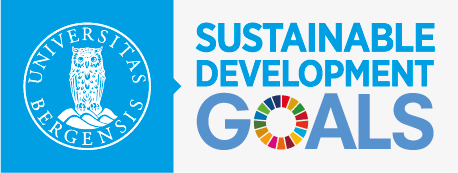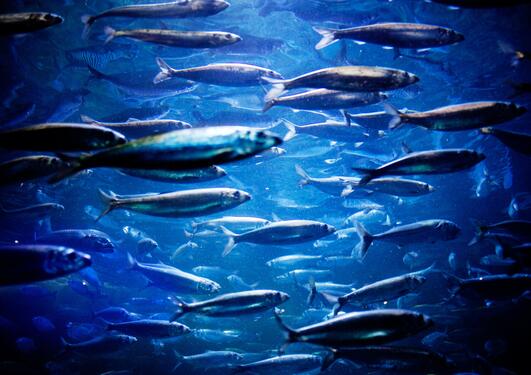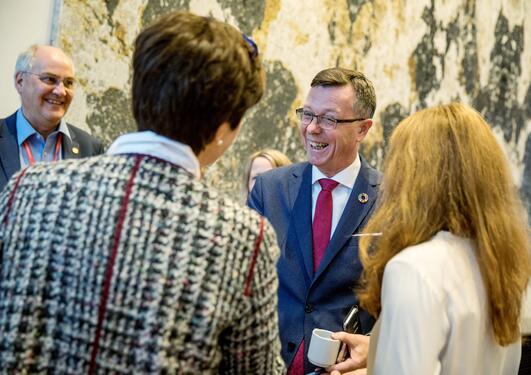Ocean conference with a focus on science-policy nexus
190 scientists, students and ocean enthusiasts gathered in the University Aula for the inaugural Ocean Sustainability Bergen Conference and speeches on current research and inspirational speeches on a sustainable ocean.
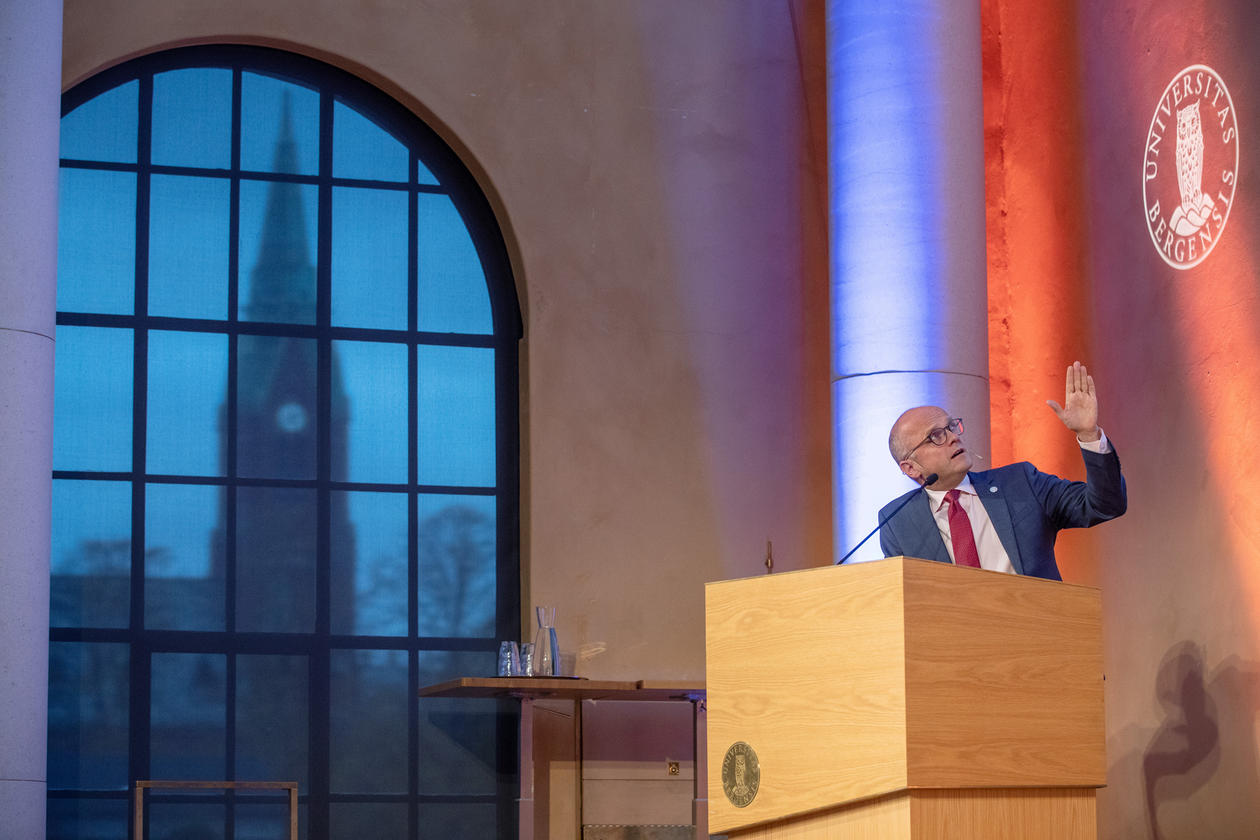
Hovedinnhold
The first Ocean Sustainability Bergen (OSB) Conference was packed with research presentations, a historic look at the science-policy nexus in Bergen and how to strengthen science advice in the future.
Creating a global network
In his opening, Rector Dag Rune Olsen pointed to how the University of Bergen's (UiB) recently appointed Honorary Doctor, Ambassador Peter Thomson, had encouraged the world's universities to engage with the Sustainable Development Goals (SDGs) and the UN 2030 Agenda.
“I am tremendously proud of our university to share a network of universities globally that is responsible for SDG14 – Life below water, sharing our ocean science and education experiences,” said Rector Olsen, “also that we are gathered here today for the first University of Bergen conference on a sustainable ocean taking place.”
The rector was referring to the leadership and the key responsibilities given to the University of Bergen on SDG14 by both the United Nations Academic Impact (UNAI) and the global network International Association of Universities (IAU).
Commitments in ocean science
A video greeting to the conference from Dr. Shantanu Mukherjee of the United Nations Department for Social and Economic Affairs (UN DESA) underlined the importance of the inspirational role the University of Bergen has in regard to its UNAI commitment on SDG14.
“We were lucky to be chosen and happy to achieve this. We were obviously selected based on our research, but also because we engaged early on in sustainable development,” said OSB Director Lise Øvreås, who is a professor of microbiology at the University of Bergen, in her presentation which included a run-through of the SDG14 work at the university.
She referred to the book ‘The Honest Broker‚ by Roger A. Pielke, Jr in relation to science advice.
“We need to look at how to expand the scope of actions available. You are given options, but you have to make the choice. The honest broker is the obvious way to go to provide science advice,” she said in her presentation.
Professor Øvreås then shared the stage with Professor Edvard Hviding, who is director for SDG Bergen Science Advice, a key part of the university's push into science diplomacy. A first taste of the research presentations to follow later on the first day of the conference, came when PhD Candidate Ashneel Chandra presented his research on how to improve climate predictions.
A short history of the science-policy nexus
In the first keynote of the conference, Programme Director Peter M. Haugan from Norway's Institute of Marine Research presented what he called ‘the Bergen Approach’ to ocean science and policy. In a wide-ranging keynote, Professor Haugan pointed to the wide range of activities that have taken place historically and are ongoing along the science-policy nexus in Bergen.
The second half of the day was mainly devoted to science dissemination and a variety of current ocean-related research and education in five 10-minute presentations.
The end of day one was devoted to the first Annual Ocean Sustainability Bergen Lecture, by Vidar Helgesen, Norway's Special Representative for the Ocean working for the global Ocean Panel established by Norway's Prime Minister Erna Solberg.
Possibilities in the ocean economy
“There are limits to land-based growth. It is no coincidence that the EU's first blue economy strategy came after the financial crisis and we see more countries looking for more opportunities in the ocean economy,” said Helgesen in his lecture.
According to the OECD, ocean-related goods and services currently stand at 2.5 trillion USD, an amount that is expected to double by 2030.
“If the ocean was a country it would be the seventh largest economy in the world,” said Helgesen, “looking at the asset value of the ocean, it is estimated at 24 trillion USD, which compares to the Norwegian wealth fund. It is an enormous amount, and the research for the Ocean Panel shows that we have been underevaluating the ocean.”
Helgesen pointed out that export from developing countries in fish and aquaculture is bigger than their combined agricultural exports, as an estimation of its potential.
“We need to produce more food and more energy from the ocean, in an active and regenerative way. It is extremely important that we create an ocean health assessment,” said Helgesen before highlighting three growth areas in the ocean economy: Food, green blue energy and green blue transport.
